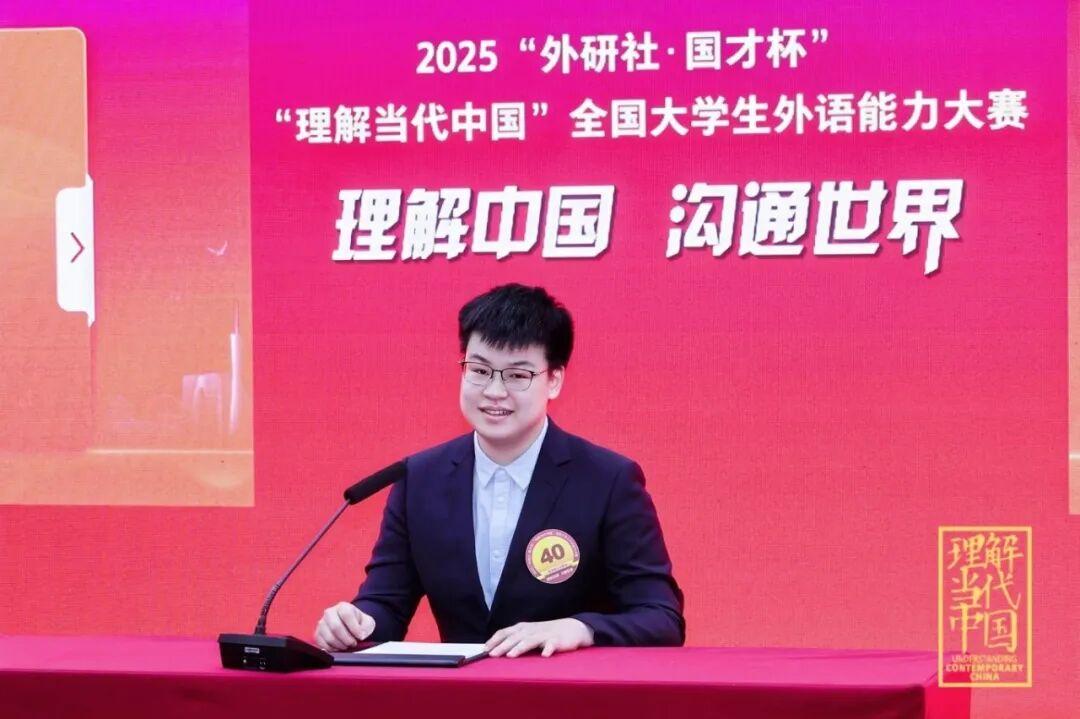Alumni Story | Rui Cao: Double Minors and Research Training Paved My Way to a Top Finance PhD Program
Studying at the College of Business and Public Management is not only an academic endeavour but also a path of self-discovery and professional growth. Many WKU students find their passions here and step onto a broader stage.
In recent years, a growing number of CBPM graduates have continued pursuing PhDs at prestigious universities in China and abroad. Rui Cao, a 2022 graduate, is one of them. This September, Rui will begin her PhD at the Georgia Institute of Technology in the United States.
We connected with Rui, who is currently in the U.S., to share her story. Through the interview, we will be able to understand how she navigated different educational cultures, and finally find her passion and achieve her dreams. We hope her academic journey will inspire more WKU students to continuously explore, strive, and move forward on their academic and career paths!
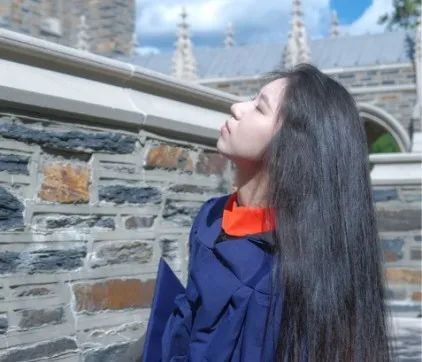
From 2018 to 2022, Rui Cao studied at Wenzhou-Kean University, majoring in Finance with minors in Mathematics and Computer Science.
From 2022 to 2024, she pursued a Master of Engineering in Electrical and Computer Engineering at Duke University.
In the fall of 2024, Rui will start her Ph.D. program at Georgia Tech University. Georgia Tech is ranked 33rd nationally, with many of its business school programs ranking in the top 10 in the U.S. The acceptance rate for the Ph.D. program in business is around 5%, and the average starting salary for Ph.D. graduates in finance ranges from $180,000 to $250,000. Rui has secured a full scholarship that includes $35,000 research assistantship stipend and $30,000 tuition waiver per year.
1. What unforgettable experiences did you have during your studies at CBPM?
At WKU, the flexibility of course selection allowed me to not only focus on my major in Finance, but also enabled me to pursue minors in both Mathematics and Computer Science. These minors greatly benefited my internships and graduate applications. Additionally, the uniqueness of American educational settings that emphasize the formative learning process was incredibly valuable for me. For example, the exams of the course only count as 50% of the final grade, while presentations, teamwork, projects, quizzes, and discussions count for the other half. The opportunities to give presentations, collaborate on teams, and work on projects significantly enhanced my personal skills.

During my undergraduate years, I had numerous internship opportunities related to quantitative and data analysis. For example, I used to work as a data analyst assistant at an investment consulting company in Beijing, and I utilized Python for WeChat data scraping and stock selection at Northeast Securities. I conducted Yellow Pages data analysis at the Newford Research Institute of Advanced Technology, and contributed to industry research reports at Tianfeng Securities.
Prof. Jianing Zhang's senior thesis course has left a deep impression on me. He was an extremely dedicated professor who paid close attention to each student. The course was structured around eight assignments, each of which he would comment on and revise individually. My undergraduate thesis on machine learning for stock selection was even published as a book chapter. He also provided invaluable advice on my further studies and career development after my graduation. These experiences were instrumental in my Ph.D. application after I completed my master’s degree.
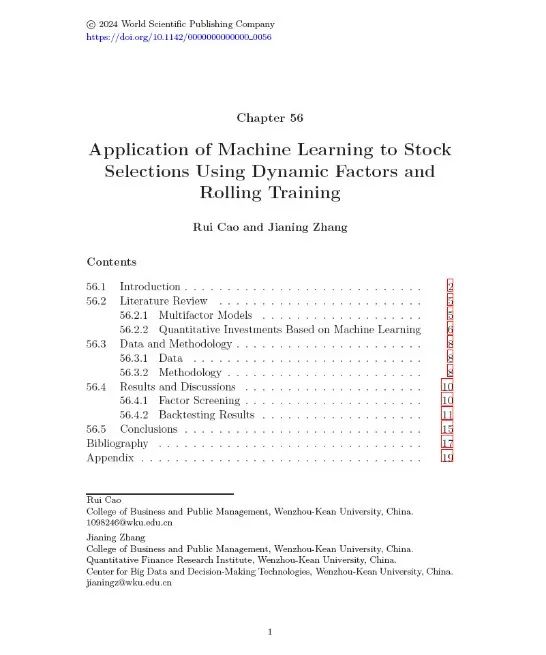
Prof. Fa-Hsiang Chang's classes in economics were also engaging and insightful. He taught me not only professional knowledge but also life lessons such as "what's suitable is the best." Prof. Tiffany Tang and Prof. Omar Dib from the Department of Computer Science also provided me with tremendous academic support in my minor studies.
2. Why did you choose Duke University upon graduation? How was your study at Duke?
Duke University is ranked among the top ten universities in the United States. The Electrical and Computer Engineering (ECE) program at Duke offers a well-structured curriculum that progressively enhances my computer programming skills in applied fields. From foundational courses to advanced topics, Duke's curriculum is comprehensive and practice-oriented, helping me find a perfect balance between theory and practice.
The coursework at Duke is extremely demanding, requiring significant time and effort from students. Fortunately, my experience at WKU prepared me well for the American academic environment. I have become proficient in efficiently managing my time and tasks in a highly autonomous learning environment. Moreover, my previous learning experiences in Mathematics and Computer Science at WKU laid a solid foundation for my graduate studies at Duke, allowing me to meet the rigorous demands and excel in a new academic environment in the United States.
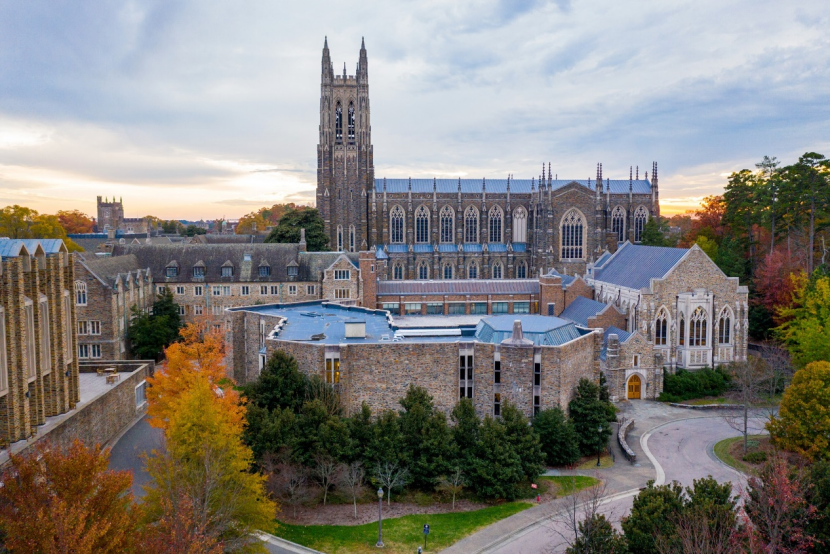
3. Why did you decide to pursue a PhD degree? Can you share your PhD application experience?
My undergraduate thesis focused on machine learning for stock selection, an interdisciplinary field that combines finance and computer science. During my research, I learned numerous machine learning algorithms by myself and applied a novel rolling-window method to train the models, which significantly improves stock selection returns. This experience sparked my interest in research, so after completing my master's degree, I decided to pursue a PhD degree. My career goal is to become a professor who can continue doing research in the future.
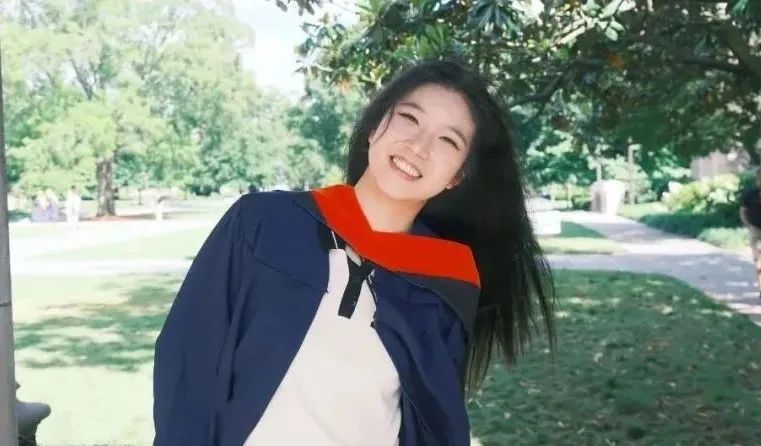
The PhD application process was quite stressful, as acceptance rates for finance PhD programs are very low, around 2% to 5%. However, I was ultimately accepted into Georgia Tech's program with a full scholarship. I believe my academic experience at WKU and my educational background in Computer Science during my master’s have played an important role in this success. Furthermore, under Prof. Jianing Zhang's guidance, I received systematic research training and published conference papers and book chapters, which greatly strengthened my PhD application. Lastly, studying at WKU allowed me to obtain a U.S. degree, which not only helped waive the English testing requirement during the application process but also made my degree more recognizable to U.S. institutions.
4. What areas of research are you currently focused on? What are you expecting from your PhD studies at Georgia Tech?
My academic studies in finance and computer science have equipped me with a diverse skill set and unique perspective, preparing me well for various research topics in the field of finance. While I am passionate about exploring the application of technologies such as machine learning in finance, I am also looking forward to delving into other areas of financial research at Georgia Tech. The interdisciplinary educational approaches at Georgia Tech are particularly appealing to me, as they support a wide range of financial studies in depth. I believe that Georgia Tech will be the perfect place for me to further my research and academic growth.
5. Do you have any advice for senior students who plan to apply for graduate schools or PhD programs?
Doing research can be a rather tedious process that requires patience and perseverance, so don’t shy away from challenges. Finance PhDs demand a strong foundation in mathematics and programming, so I would recommend juniors or seniors to learn more knowledge in calculus, probability theory, statistics, and linear algebra. It is essential to familiarize yourself with tools like SAS, STATA, Python, and SQL, and build a solid foundation in these challenging areas before you go further to graduate schools.
On the other hand, participation in business or mathematics competitions can help you gain practical experience and enhance your personal competence. During my undergraduate years, I took part in several mathematical modeling contests, such as the 2021 Huashu Cup Mathematical Contest in Modeling and Kaggle Competition in Data Modeling and Mathematical Analysis. Sharing your projects on GitHub can also be very beneficial for applying graduate schools. As for myself, I included my GitHub web in both my master's and PhD applications. In addition, creating a personal website is a great way to showcase your skills and can be listed on your resume to further enhance your personal image.
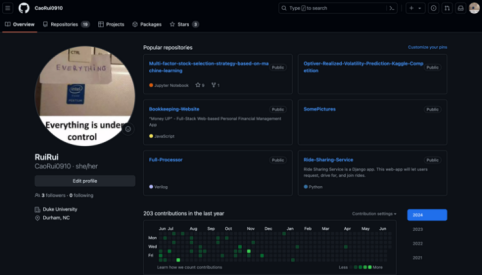
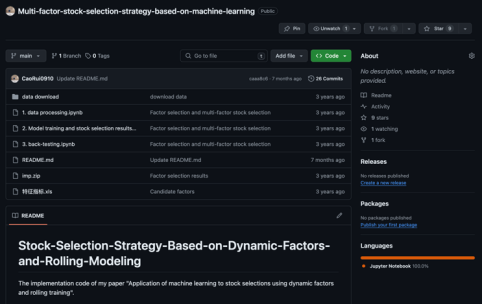
6. What qualities do you believe are most important for a researcher?
First and foremost, patience and perseverance are the most critical qualities for a researcher because doing research is like digging a well—you can’t give up halfway. When facing difficulties, it's okay to take a short break, but never abandon your efforts. Secondly, attention to detail and careful observation are crucial skills, especially in data processing where even a slight mistake can lead to a significant mistake. And don't let the grass grow under your feet because time is of the essence. Finally, proficiency in reading English literature, a solid foundation in mathematics, and strong programming skills are the basics for conducting research. Mastering these abilities will make it more efficient to solve problems.
Overall, I believe that personal abilities in English, mathematics, and computer science, along with attention to detail, persistence, and diligence, are key factors to success in research, and each of them is indispensable.
- Wenzhou-Kean University Spearheading Sustainability in Higher Education in Asia and in China, Awarded the AASHE STARS Gold-Certified in Sustainability
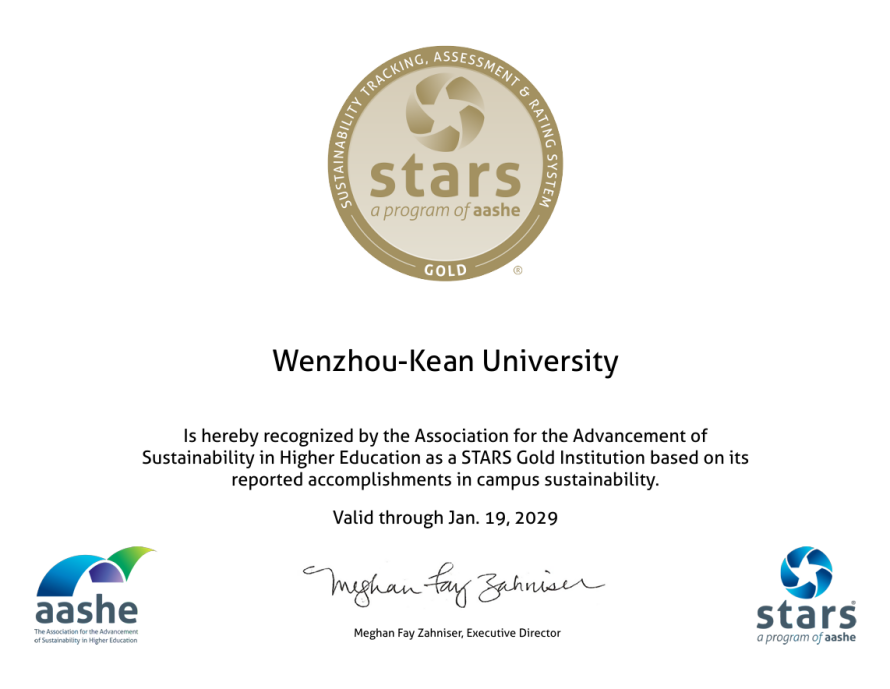
- Media Report | Wenzhou Daily: A Window into Friendship Between Chinese and U.S. Youths Wenzhou-Kean University Welcomes 340 Young Americans in Two Years
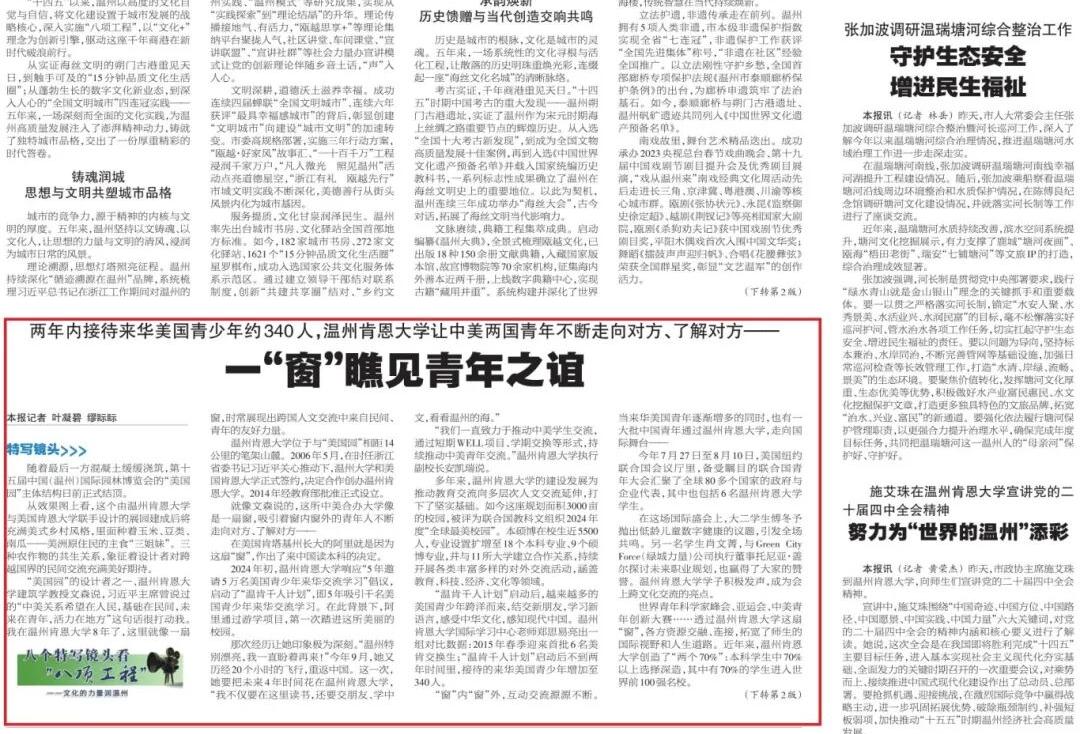
- WKU Student wins first prize in a national English speech contest: What is his answer to the value of boredom?
